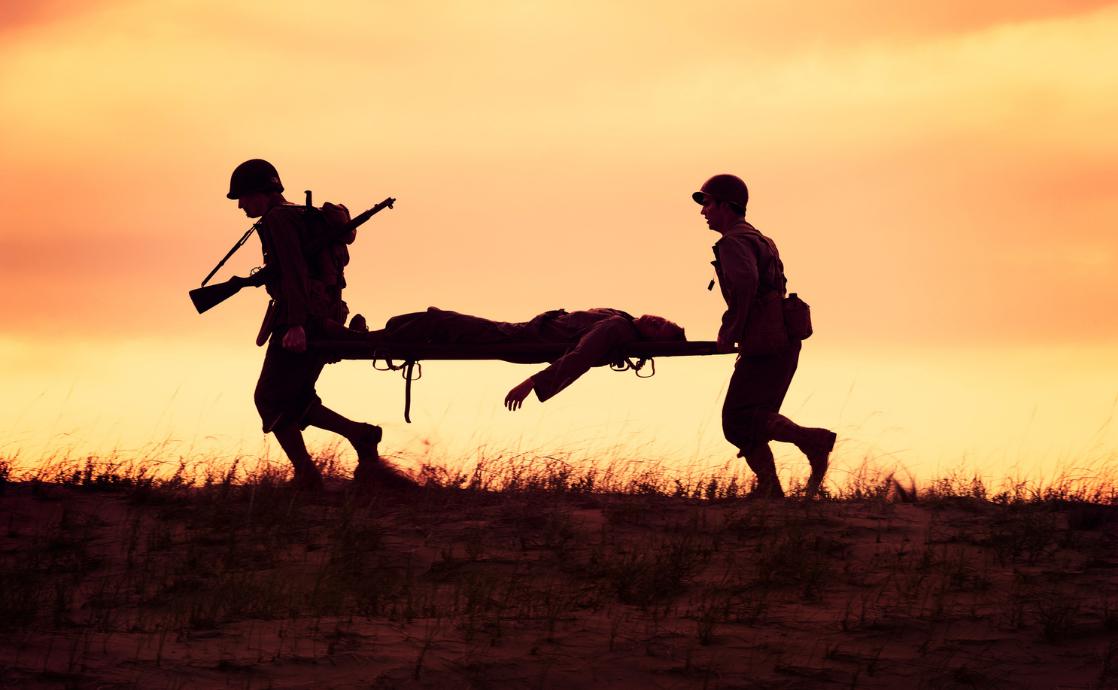War has long been an intrinsic part of human history, often invoked as a necessary evil in the pursuit of justice, freedom, or national interest. However, within the tumultuous framework of conflict, the voices of the individuals who bear its heaviest burdens—the soldiers—are frequently marginalized. A reassessment of this dynamic through the lens of Bahá’í principles reveals compelling arguments for the necessity of including soldiers’ perspectives in the discourse surrounding war. This notion not only reshapes our understanding of military conflict, but it also opens a dialogue rich with moral implications, ethical considerations, and profound philosophical inquiries.
At the heart of Bahá’í teachings lies the concept of the oneness of humanity. This precept asserts that all individuals—regardless of their backgrounds—should be accorded dignity, respect, and the opportunity to contribute meaningfully to discussions that impact their lives. Soldiers, as members of society, possess unique insights that are often overlooked in strategic conversations fraught with political jargon and abstract objectives. Recognizing the humanity in soldiers leads to the understanding that their voices, experiences, and sentiments are indispensable elements in the decision-making processes concerning war.
The predominant narrative surrounding war often frames it as a dichotomy—us versus them—where soldiers function merely as instruments of state policy. Yet, within the Bahá’í framework, there is an inherent call for greater empathy and compassion. To have soldiers participate in discussions about war is to humanize them, recognizing their fears, aspirations, and the psychological toll that combat exacts. Their testimonies can illuminate the ramifications of conflict that evade the standard geopolitical analysis shaped by detached theorists and strategists. Indeed, the stories shared by soldiers can breed understanding, ultimately fostering more humane approaches to conflict resolution.
Moreover, the Bahá’í emphasis on consultation as a method of decision-making bolsters the argument for soldier involvement in discussions about war. Consultation is portrayed not merely as a bureaucratic necessity but as a means of tapping into collective wisdom. When soldiers engage in the consultative process, they bring forth vital perspectives that can refine military strategies and promote accountability. Their contributions can challenge entrenched military ethos, leading to transformative changes that prioritize de-escalation and dialogue over aggression.
Consider the psychological ramifications of war. Soldiers grapple with profound mental and emotional strains, often leading to conditions such as post-traumatic stress disorder (PTSD). Yet, these experiences remain veiled under societal stigma, preventing soldiers from voicing their vulnerabilities, even in environments that ostensibly promote freedom of expression. By allowing soldiers to articulate their struggles, we foster a culture of openness and healing—a fundamental tenet in Bahá’í thought where the well-being of the individual is paramount. In this regard, the acknowledgment of soldiers’ voices could catalyze initiatives aimed at better mental health support and rehabilitation services, thus enhancing their reintegration into civilian life.
Additionally, involving soldiers in the discourse surrounding war invites a paradigm shift concerning the rationale behind military engagements. It provokes critical questions: What is the moral justification for entering combat? Are the objectives of war aligned with humanitarian principles? The lived experiences of soldiers can challenge reductive narratives that glorify combat while glossing over its existential toll. Through sharing their accounts, soldiers can expose the fallacies that underpin certain military ventures, urging decision-makers to adopt a more thoughtful approach to international relations and conflict resolution.
Importantly, this dialogue is not solely for the benefit of soldiers; it serves as an opportunity for society at large to reassess its values and ideals. By acknowledging the voices of those who have been directly impacted by warfare, we initiate a collective soul-searching that might lead to enhanced advocacy for peace. Engaging with soldiers can catalyze civic responsibility, invigorating public discourse around military action and its ethical implications—a reflection of the Bahá’í call for global citizens to foster peace and justice.
Furthermore, the inclusion of soldiers’ voices adds a layer of authenticity to the narratives we construct about war. When policymakers and military leaders overlook the perspectives of those on the front lines, the resulting policies often lack the nuance necessary for effective implementation. Soldiers, equipped with firsthand knowledge and personal accounts, can provide insights that traditional analyses may miss. Their involvement ensures that the legislative processes governing military actions remain grounded in reality, as opposed to detached ideation.
This necessitates a reevaluation of military training and education, emphasizing the importance of communication and ethical reflection as integral components of soldier preparation. Incorporating training modules that prioritize emotional intelligence and the articulation of personal narratives can foster a new generation of military personnel who not only comprehend their role in an ethical framework but also feel empowered to express their feelings and thoughts throughout the duration of their service.
In conclusion, the Bahá’í perspective underscores the profound necessity of elevating the voices of soldiers in discussions about war. Their insights contribute not only to the betterment of military strategy but also to the moral and ethical fabric of society itself. By rethinking the approach to war to include soldier narratives, we not only recognize their humanity but also initiate a transformative process that has the potential to reshape our collective understanding of conflict. In this light, the inclusion of soldiers’ voices is not just advantageous; it is an imperative for achieving a more just, compassionate, and humane world.
